A research team of Professor Jianguo Zhu of SCU College of Materials Science and Engineering has cooperated with Professor Qifa Zhou’s research team from University of Southern California and made great progress in the research on the application of KNN based lead-free piezoelectric materials in the making of micro ultrasonic devices. Their research findings are published as a cover story titled “Ultrasound-induced Wireless Energy Harvesting for Potential Retinal Electrical Stimulation Application” in Advanced Functional Materials ( IF=15.621 ). The first author of this research paper is Laiming Jiang, a doctoral student of a joint program between SCU College of Materials Science and Engineering andRoski Eye Institute, Keck School of Medicine, University of Southern California. Professor Jianguo Zhu is the co-corresponding author.
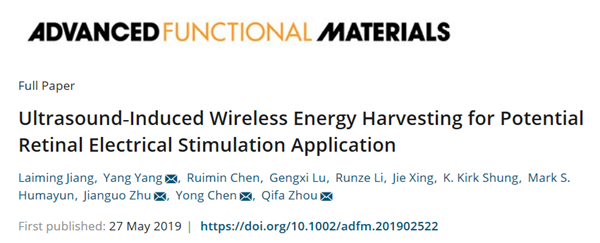
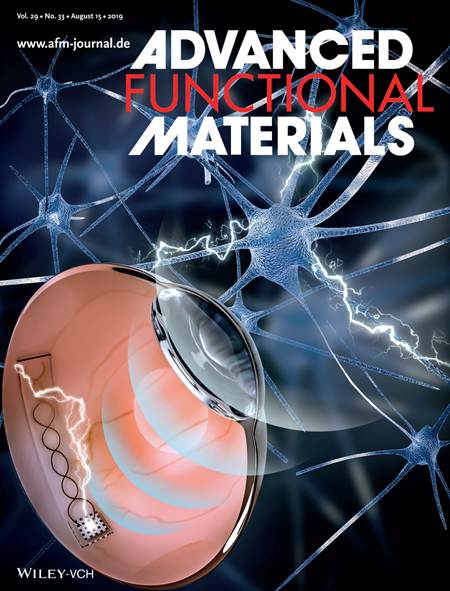
Figure 1. Application of ultrasound-induced wireless energy in retinal nerve electrical stimulation
In order to make blind people suffering from external retinal diseases perceive visual signals, a new visual prosthesis with direct electrical stimulation of visual neurons is needed. As it needs to be implanted into the human body, the visual prosthesis requires a power transmission system that can provide enough energy for nerve electrical stimulation within the safety limit, while ensuring the miniaturization, biocompatibility and long life cycle of the equipment.
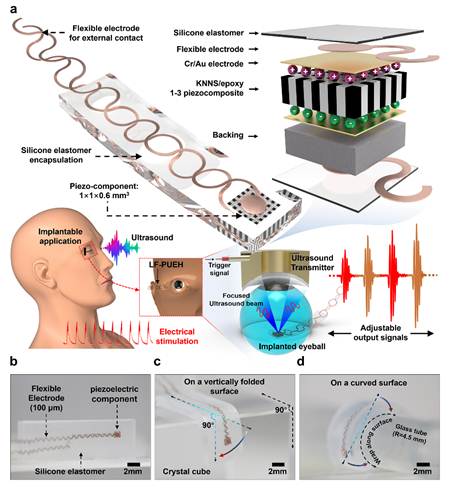
Figure 2. Structure, working principle and sample optical image of LF-PUEH
The lead-free ultrasonic energy acquisition device ( LF-PUEH ) has improved acoustic and electrical properties and mechanical compliance similar to biological tissues. It not only can achieve ideal piezoelectric potential output under ultrasonic driving, but also is environmental friendly and highly flexible, ensuring safe and close contact with human tissues.
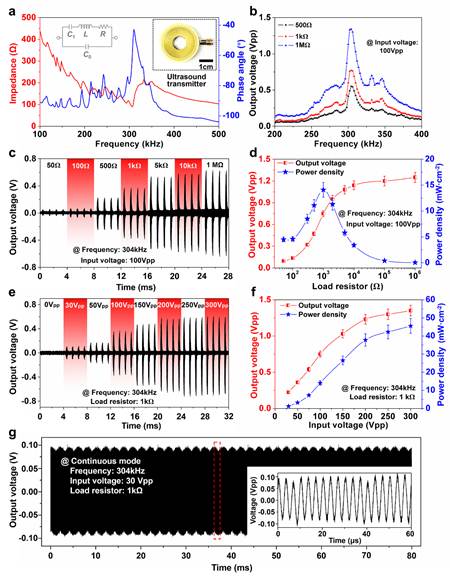
Figure 3. Output performance characterization of LF-PUEH
The results show that when the load is 1K Ω, the device can obtain the best output performance, and the maximum instantaneous power density is 45 MW / cm2.
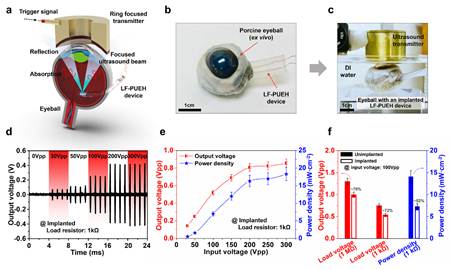
Figure 4. Schematic diagram, optical image and output performance characterization of LF-PUEH under simulated implantation conditions
“The design, fabrication, and performance of a millimeter‐scale flexible ultrasound patch that utilizes an environment‐friendly lead‐free piezocomposite are described. A modified dice‐and‐fill technique is used to manufacture the microstructure of the piezocomposite and to generate improved electrical and acoustic properties. The as‐developed device can be attached on a complex surface and be driven by ultrasound to produce adjustable electrical outputs, reaching a maximum output power of 45 mW cm−2. Potential applications for charging energy storage devices and powering commercial electronics using the device are demonstrated. The considerable current signals ( e.g., current >72 µA and current density >9.2 nA µm−2 ) that are higher than the average thresholds of retinal stimulation are also obtained in the ex vivo experiment of an implanted environment, showing great potential to be integrated on implanted biomedical devices for electrical stimulation application.” ( Abstract )
Article link :https://onlinelibrary.wiley.com/doi/abs/10.1002/adfm.201902522
DOI: 10.1002/adfm.201902522
